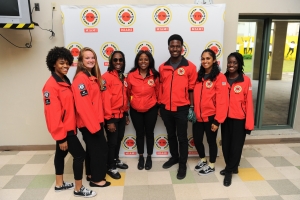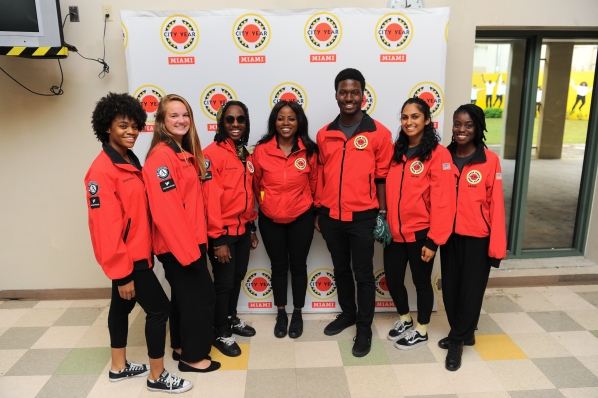Since graduating from Appalachian State University in May of 2019, Emily Hatem set out to experience sociology in the real world before considering graduate school opportunities. Before graduation, Emily struggled with the next steps in her educational trajectory. She was not sure if she should enroll in a graduate program without really knowing what she wanted to do as a career. As her advisor and chair, Dr. Cameron Lippard suggested that Emily consider finding an internship or service-learning opportunity to test her skills, search her passions, and gain some experience. Thus, Emily decided to apply and was accepted to serve as an education specialist with an AmeriCorps program called City Year. As Emily stated,
City Year empowers young adults to serve in high-need schools across the country to support students, teachers and schools all day, every day for one year. Corps members are placed in ELA or math subject areas and are partnered with a teacher or teachers to build strong relationships and provide academic and social-emotional support to their students. I proudly serve at Homestead Middle School as a math corps member. I am responsible for facilitating differentiated interventions for the lowest 25% of academically ranked students in my classes. Outside of the classroom, my team and I provide tutoring and plan and execute events to engage the entire school. As a City Year AmeriCorps member, not only do I have the opportunity to impact the lives of students in the community I serve, but I am provided valuable training and professional development experience that will prepare me for my career post City Year. My plans for next year are still uncertain. I plan to either serve another year with City Year as a Team Leader or begin a dual Master's program in Social Work and Public Administration.
Emily now finds herself in Miami, Florida working with several colleagues to help at-risk juveniles through their educational experiences. During this experience, she has realized that sociology fully prepared her to be a strong critical thinker who can understand the various lived experiences for at-risk, minority students in Miami. Emily also sees herself as fighting against stereotypes and stigma attached to students who struggle in school.
My background in sociology helps me to understand the economic and social inequality evident in the school that I work in and how it has become an intergenerational issue. For example, many of the students that I work with are currently failing because they do not attend school or complete work because of safety or health concerns that they cannot overlook outside of school. This relates to Maslow's Hierarchy of Needs. These students have not satisfied lower level deficit needs so they have been unable to progress on to meet high-level growth needs. My understanding of labeling theory has also helped me to understand my students. According to labeling theory, deviance is socially constructed through reaction instead of action. In other words, no behavior is inherently deviant on its own. Instead, it's the reaction to the behavior that makes it deviant or not. I see examples of this in my school on a day-to-to basis. Many of the students are labeled "bad," "psycho," or "criminal." I am working to fight against these stigmas and helping to cultivate positive self-concept and social identity among my students.
Overall, Emily's experiences have given her an opportunity to really understand ways in which she can create change in communities that struggle to make ends meet and getting their children to school. She also realizes that taking a year to search options and try out experiences has really helped her to focus and think about what she really wants to accomplish in the future. Emily also provided this bit of advice to students at Appalachian who are looking towards graduation and the next steps.
My advice to current sociology students making plans after graduation is to first, take a deep breath. Everything will work out. I know I was panicking around this time and wondering where the heck I would end up after graduation. If this sounds like you, I would advise you to consider a service year with AmeriCorps or a different non-profit organization. If you are uncertain of your next steps, a service year can provide experience and connections in your future field.
The Department of Sociology is proud of Emily's continuing perseverance and her service to communities in Miami. With these kinds of experience, we believe that Emily will only find more success in her future!

